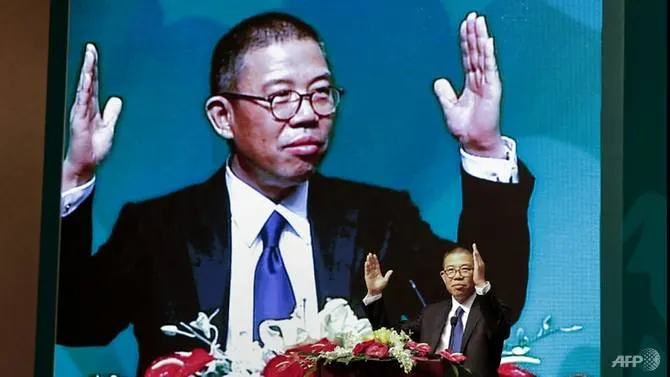Reclusive Chinese water tycoon is now Asia's richest person
10 March, 2021

Until recently, few persons had even heard about the Chinese billionaire with a good gruff standing who built a fortune on China's seemingly unquenchable demand for his ubiquitous red-capped water in bottles.
But reclusive Zhong Shanshan is becoming Asia's richest gentleman following stock listings last year of his Nongfu Planting season mineral water and split pharma enterprise Wantai Biological Pharmacy Business, which includes tapped into massive demand for COVID-19 check kits.
Zhong's net worth possesses surged to US$85 billion and made him the seventh-richest person on earth, Hurun Report, a good China-founded compiler of "rich lists", said the other day.
Known as a "lone wolf" by Chinese media designed for his rare general public appearances and aversion to interviews, Zhong has achieved one of the most effective accumulations of wealth ever sold, according to Bloomberg.
He became the initial Chinese business owner to enter Hurun's top 10 global rich list this season, leaping out of nowhere to put him hot on the heels of Facebook's Mark Zuckerberg and American investor Warren Buffett.
Not bad for a person who dropped away of school at age 12 through the political upheaval of China's 1966 to 1976 Cultural Revolution, and whose soon after jobs included bricklayer, carpenter and news reporter, according to Chinese media.
Zhong founded Nongfu Planting season in 1996 and still owns an 84 per cent stake in the business which, according to advertise research firm Mintel, keeps more than a one fourth of the water in bottles market found in China, where many persons avoid tap water over health concerns.
In contrast to charismatic Alibaba founder Jack Ma - whom Zhong dethroned as China's richest man - little is well known about Nongfu's billionaire boss apart from his gruff image.
"I don't possess the habit of flattery in my own persona," he once told Chinese press in a good rare interview.
"I can't stand to deal with persons and have to take in," he added, discussing a Chinese business customs that encourages excessive wining and eating to cement deals.
His fortunes have risen just as those of Chinese tech firms have slid.
POLITICAL SCRUTINY
Ma is now value a comparatively paltry US$55 billion, according to Hurun, after federal government regulators launched an anti-monopoly investigation into his tech empire, which has pummelled Alibaba's share price and left an enormous IPO by financial arm Ant Group found in limbo.
Although Alibaba and Nongfu are headquartered in the humming eastern tech hub of Hangzhou, Zhong is not a normal attendee at the city's business events, one native entrepreneur told China Economic Weekly.
A former business spouse told state mass media he once attended a business meeting with Zhong, who "visited the stage to give a speech, and offended everyone when he opened his oral cavity", without providing information on the offending words.
Together with Nongfu, which listed last year in Hong Kong, Zhong is also the biggest shareholder in Wantai, which went consumer in Shanghai.
The group's rapid COVID-19 test gives results in 75 minutes and, according to its website, has shipped a lot more than 10 million kits.
Wantai is also creating a COVID-19 vaccine nasal spray in conjunction with a prominent university.
Wantai may be the biopharma arm of Yangshengtang Group, a medical business Zhong founded 3 years just before Nongfu, which specialises in infectious diseases and says it's the largest production basic in Asia for HIV diagnostic reagent.
Hurun says the show listings make Zhong among only a small number of entrepreneurs nowadays to have founded more than one US$10-billion business.
Zhong includes a stake, investment or perhaps board role in a lot more than 100 firms, according to Chinese business data.
But like additional high-profile Chinese industrialists, he has to tread a line somewhere between commercial achievements and official scrutiny.
"The Chinese Communist Party wants Chinese businesses to be big and be international, but it addittionally wants to retain some extent of control over them," stated Yun Jiang, director of China Policy Center in Canberra.
She says no high-profile business persons can entirely hope to "get away political scrutiny" - particularly after they appear on rich list rankings.
Source:
TAG(s):
